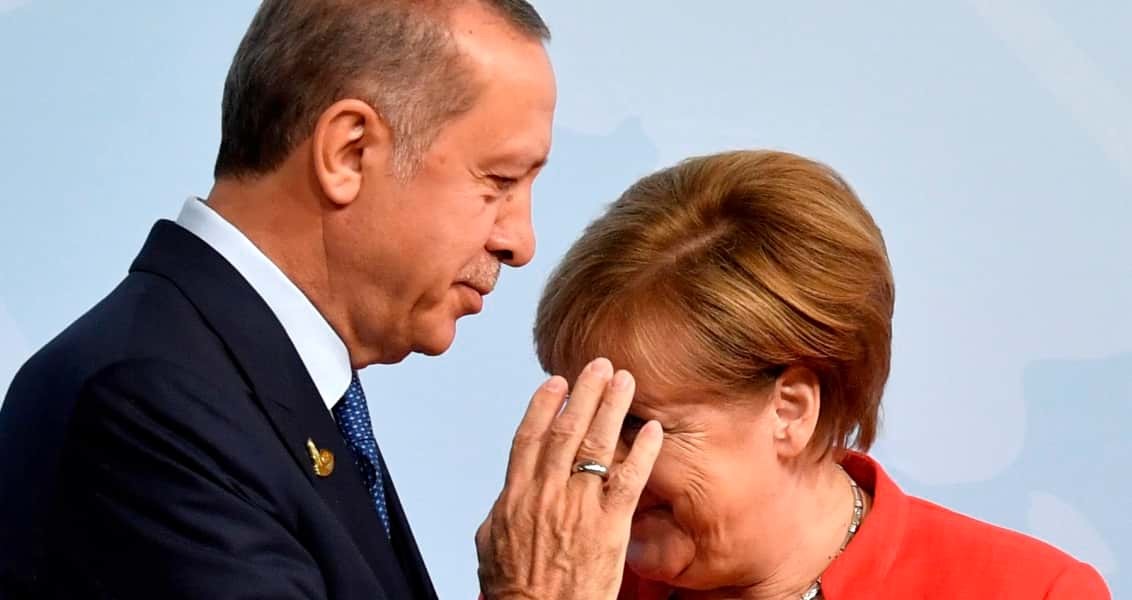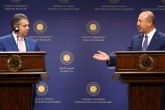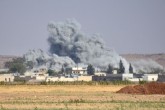Turkish-American relations have been the topic of this column on many occasions. The increasing divergence of policies in Syria and the deterioration of the situation in this realm following U.S. military assistance to the PKK-affiliate People’s Protections Units (YPG) generated the crisis of confidence between the two countries. As a result of the lack of a strategy in Syria, the international coalition-backed YPG operations against Daesh led to an operation-driven policy for the U.S. Turkish sensitivities about west of the Euphrates were challenged, and the U.S. decided to directly arm the YPG prior to the beginning of the Raqqa operation.
Since then there have been constant summits between foreign and security policy makers of the two countries. In most of these meetings and phone conversations, the Turkish side has repeated its protest about U.S. support for the YPG. However, these concerns from Turkish policy makers were not taken into consideration by the U.S. administration. This lack of sensitivity to an ally’s security concerns left a bitter taste for Turkey and resulted in a serious level of skepticism towards the U.S. The eventual outcome was that at the policymaking level this lack of trust impacted the chemistry between the individual leaders as well.
The last of these high level visits took place between U.S. Secretary of Defense James Mattis and his Turkish counterparts in Ankara. According to early reports, the agenda of the meeting included U.S. assistance to the YPG and its potential security implications for Turkey. These reports demonstrate that the U.S. underlined several issues including the talking point that relations between the YPG and the U.S. is only tactical and focused on the operation in Raqqa, which may be interpreted that after the Raqqa operation the U.S. will cease its military assistance to the YPG. They also indicated that Turkey will be informed about weapons that have been delivered to the YPG, and there will be intelligence cooperation against the PKK.
It seems that the meeting could result in a positive turn in relations only if certain follow-ups take place. Thus, Turkish policymakers will be extremely cautious in the coming days about future relations. First, although it is a different administration in the U.S. right now, the memory of the broken promises of the Obama era will continue to haunt relations. For instance at least at the public opinion level, there are so many unanswered questions about U.S.-YPG relations. For instance, what was the promise for the YPG for their part in the operations and what will be the exit strategy for the U.S. in its “tactical partnership” with the YPG? What is the source of trust between the U.S. and the YPG? Second, there is a high level of skepticism of the verbal commitments of the U.S. in Turkey and the only thing that will bring a real positive turn in relations will be actions. In the absence of this, rhetoric will not change much.
Thirdly, despite the goodwill to improve relations and to be able to handle problems between the two countries between the leaders right now, there are important precautions that must be taken to protect this positive atmosphere. In this critical juncture, mixed messages from the U.S. will not help relations and will result in further distrust. Important precautions include preventing public relations disasters that hurt bilateral relations. Photos with PKK members being shared on Twitter and statements and accusations against Turkey in different forums will be the biggest spoiler of this positive atmosphere.
[Daily Sabah, August 26, 2017]
In this article
- Foreign Policy
- Opinion
- 2017
- DAESH
- Daily Sabah
- Kurdistan Workers' Party Terrorist Organization (PKK)
- Middle East
- People's Protection Units (YPG)
- PKK - YPG - SDF - PYD - YPJ - SDG - HBDH - HPG - KCK - PJAK - TAK - YBŞ
- Syria
- Syrian Civil War
- Syrian Conflict
- Syrian Crisis
- Terror
- Turkish Foreign Policy
- Turkish-American Relations
- Türkiye-US Relations
- Türkiye's Foreign Policy
- United States (US)
- US Military
- US Secretary of Defense
- USA



